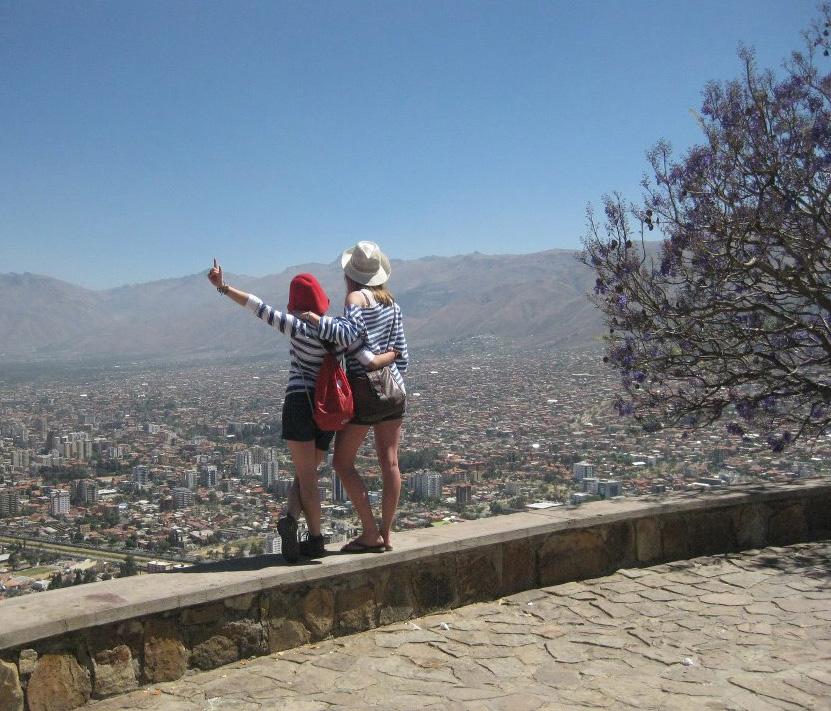
2 minute read
Volunteer to Grow
Text: Mariana De Luca Oblitas, photo: from the album of Mariana De Luca Oblitas.
How has international volunteering supported you in learning about equality and inspired you to take steps towards advancing it? We asked Maailmanvaihto’s volunteer Mariana De Luca Oblitas, who traveled from Bolivia for a volunteer year in Finland last August.
Advertisement
“I was looking for a picture from my volunteering time in Finland to show my intercultural experience in this magazine. My first thought was to include one with other volunteers, each one from a different country. After reviewing the images, I realized that my intercultural learning started when I was born, and that it happens every time I interact with someone. It doesn’t matter if they are from my local environment or from a distant country.
The differences in our behavior, preferences and personality make us unique. Nevertheless, we are categorized by ethnicity, sexuality etc. These categorizations may lead to stereotypical thinking. At first, stereotypes can be inoffensive and help us to understand the behaviour of different people, but if we are not ready to challenge them and explore the uniqueness of each individual, they can turn into different types of discrimination.
Exclusion occurs when we compare people who fit into certain characteristics with those who do not and deny rights from the latter ones for some reason – social, cultural or political, for instance. Most of the time, the segregated are the ones who live in difficult realities. Our duty as a society is to create conditions for everyone’s rights to be taken into account. One way to open our minds and boost our acceptance of differences is to travel abroad. International volunteering helps us to do it in a deeper way.
It takes us out of our comfort zone and provides new experiences. As a consequence, we understand different points of view and share our own. Through volunteering, we create new diverse perceptions of different cultures and thus reduce the impact of stereotypes. That can be the first step to creating equality between individuals and being able to transform societies.
I come from Bolivia, which is a beautiful place with great people but strong inequality. When I think about that, I get the feeling that I need to give back to my country everything it has given me. I feel that gaining a new perspective on life can help me to
deepen my understanding about my place in this world and provide me with new tools to make a difference back in Bolivia. That was my main reason to come to Finland.
While volunteering at a folk high school, I have created connections with students, teachers and the staff. Through them, I have learned more about the educational system, the importance of human resources and being active in one’s environment. While observing differences and similarities, I recognized myself as an individual who is a part of the mix of many cultures. And now, I feel more prepared to help within my own future communities.”
Text for the photo: My intercultural learning started when I was born and it happens every time I interact with someone. It doesn’t matter if they are from my local environment or from a distant country”, says volunteer Mariana. In 2011, Mariana got to know Anna who had traveled to Bolivia for volunteering and lived with Mariana and their family. “We learned from each other’s perspective on life.”








